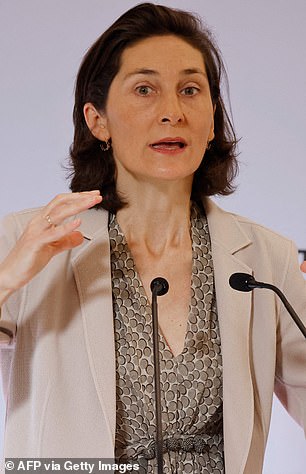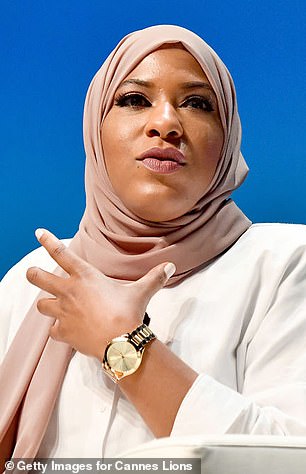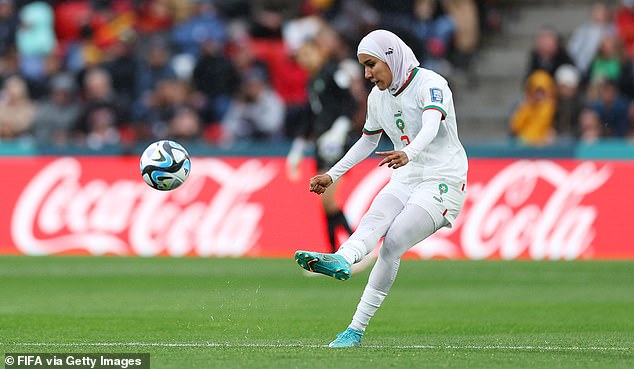France BAN their athletes from wearing hijabs at the 2024 Paris Olympics as the country’s sports minister says they will support ‘strict secularism’ during the Games
- French athletes will not be allowed to wear a headscarf during the 2024 Olympic Games in Paris
- The country’s sports minister said France was pursuing “strict secularism” during the Games
- Wearing a veil is also prohibited for football players who play in the country
France has banned its athletes from wearing headscarves at next year’s Olympics, sticking to a “regime of strict secularism” in Paris.
The country’s Sports Minister announced the news during an interview with French political program Dimanche en Politique, according to Inside the Games.
Explaining the French government’s decision, Amelie Oudea-Castera said officials – after consultation with Prime Minister Elisabeth Borne – sought “absolute neutrality” during the Games in the country’s capital.
“Thanks to a recent decision of the Council of State, we have expressed very clearly to the Prime Minister our commitment to a regime of strict secularism,” Oudéa-Castéra said.
‘This means the ban on any form of proselytism, the absolute neutrality of public services.
France has banned its athletes from wearing headscarves at the 2024 Olympic Games in Paris


French Sports Minister Amelie Oudea-Castera said the country was pursuing “strict secularism.” Pictured right: Ibtihaj Muhammad, a fencer who became the first Muslim American woman to wear a veil while competing for the U.S. team at the Rio Olympics
“The representatives of our delegations in our French teams will not wear the veil.
“The International Olympic Committee, which regulates these rules of participation, follows a logic that consists in considering the wearing of the veil not as a religious factor, but as a cultural factor,” Oudéa-Castéra added.
‘It is based on the provisions of international federations, which are not all the same in this area. There will be heterogeneity between sports.”
Wearing hijabs at the Olympics is not uncommon. At the 2016 Rio Games, fencer Ibtihaj Muhammad became the first Muslim American woman to wear a veil while competing for the U.S. team at the Rio Olympics.
France had already banned footballers competing in the country from wearing veils.
Women are currently allowed to wear a hijab in FIFA competitions – following a lengthy ban that saw the veil banned from 2007 to 2014.

FIFA lifted the ban on headscarves in 2014 and Nouhaila Benzina became the first player to wear a headscarf at a World Cup during the women’s tournament this year
FIFA cited health and safety concerns, particularly fears of possible suffocation, and regulations banned equipment that was ‘dangerous to himself or to another player’.
The Women’s Under-17 World Cup, held in Jordan in 2016, was the first time Muslim players were allowed to wear a headscarf after the ban was lifted.
But because France still bans the hijab in France, footballers were not allowed to wear it during the 2019 Women’s World Cup hosted in the country.
Morocco star Nouhaila Benzina then became the first footballer to wear the headscarf at a World Cup this year during the 2023 tournament.
